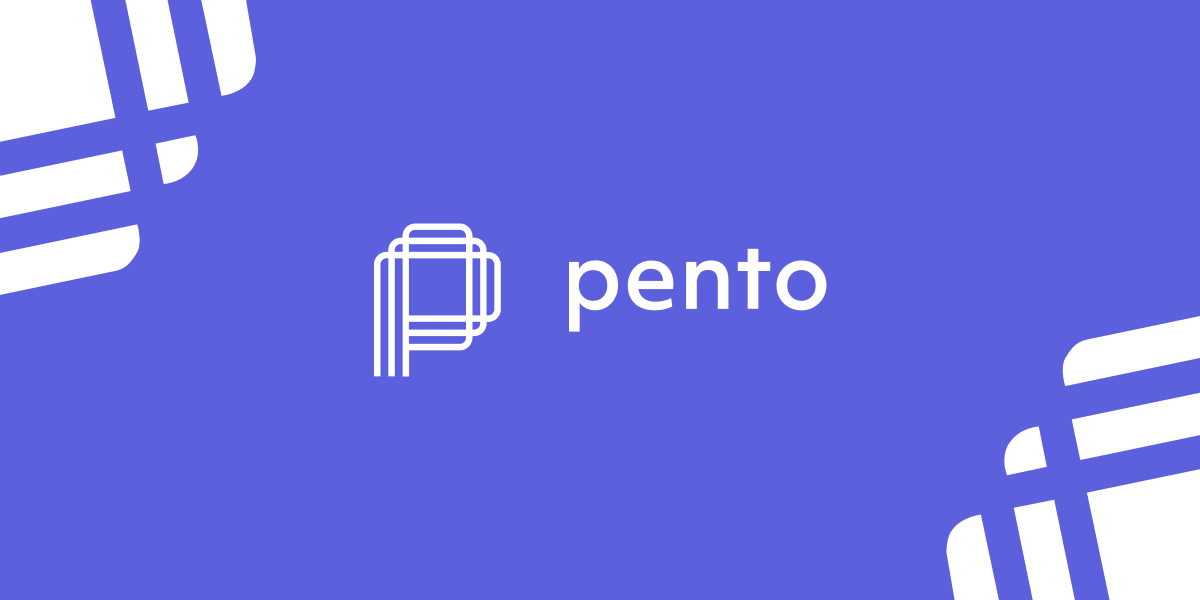How Pento raised $15.6M with Pitch

For a fast-growing startup, things change fast — what worked for Pento when they were just eight people sharing the same office wasn’t going to work as they scaled. As their team size grew, so did their aspirations, and as they prepared to raise their Series A round and expand into new markets, they needed a tool that would support them at scale.
Pento is a Danish company building payroll automation SaaS. Their tool connects with HR software — like BambooHR or Hibob — and accounting software to pull in the right metrics. Then, it pushes all the right outputs to your accounting software — and just like that, you’re done running payroll.
When Pento started using Pitch, they were a team of three working from the same office. Today, they’re a fast-growing, remote-first startup with almost 50 employees.
“As a larger, distributed team, we could no longer walk over to someone’s desk to give feedback, yet we still needed effortless collaboration,” Jonas Bøgh, their co-founder and CEO explains.
The team first discovered Pitch when they were beginning to ramp up their sales function. In the early days, they were able to address most follow-up questions with a simple Notion page, but as they began to approach larger customers, they needed to develop a traditional sales deck.
Notion was great, but not ideal for mapping out a customer’s existing accounting stack in a visually appealing way. As an early fan of Wunderlist, moving to Pitch was an easy decision.
Soon enough, the sales team was actively using Pitch for their decks, and Jonas was able to view from afar just how easy it was for them to work between teams to create on-brand presentations. Pento’s product designer had set up their initial template, and now, after a call, a sales rep just had to pick a template, swap out the logo, and send it out. He thought, why not apply that to other use cases?
Gearing up for their Series A
After gaining traction in the UK, Pento saw an opportunity to expand into additional European markets, like Ireland, Spain, Germany, and France. With market expansion came the need to grow the team, as well as develop their product to support integrations with the HR and accounting software preferred by each local market. The next step was to start fundraising so they would have the capital on hand to support their growth.
In 2019, Pento used Keynote for their seed round. Back then, with such a small team, Jonas took responsibility for the deck. He used an outside agency to help with key brand elements like the logo, fonts, and colors, then worked to pull it all together into a presentation.
“In this case, having the deck look nice was more important than being able to collaborate or get input from others,” he explains.
Since their seed round, their software stack has evolved considerably. In addition to Keynote, they also had tools like Notion, Pitch, and Figma at their disposal. When the time came to build their Series A deck, the team needed to decide which tool to use.
"Our product designer tried to pull us into using Figma,” Jonas says. “It’s a great product, but it’s not really made for decks.”
Choosing the right tool
Jonas didn’t want to have to choose between optimizing for design or for collaboration. With Pitch, they didn’t have to.
Pitch is optimized for the entire team, meaning there are features that satisfy a designer’s need for control and brand integrity, as well as features that empower anyone to contribute their ideas and feedback. For the Pento team, this meant that they didn’t need to make sacrifices on the process or the final product. Using Pitch, they could easily collaborate together to create a beautiful, on-brand pitch deck.
“It just made sense,” Jonas says. “Working with Pitch had been a great experience, so there was convenience in having everything in the same place.”
They team also loved that they could all work in one presentation. Slide statuses helped them keep track of progress, and with comments they could share detailed feedback.
“It worked well for us, because we didn’t have to coordinate on Slack or somewhere else to make sure we knew which slides we needed to work on,” Jonas says.
The winning deck
With their built-in-Pitch deck, the team successfully raised $15.6 million in Series A funding by May 2021. Now they have the capital they need to expand to more countries, build more integrations, and launch their API.
“This time around, our deck was clearly 10✕ better than what it was at the seed stage,” Jonas says. "During the fundraising process, we got a lot of praise from the investors we were pitching. They said the deck looked like something you would expect to see at a much later stage and looked way more mature than what you would usually see for a Series A.”
Here’s a look inside their winning pitch deck:
“One thing that was a huge difference for us was making sure there’s a story as you move through the deck,” Jonas explains. Instead of using titles like “team” or “traction” they made sure that the titles were contributing to a story.
“That didn’t really make sense to me in the beginning. But once you have the final deck and you start flicking through the slides in a PDF, then it makes complete sense.”
He put himself in the shoes of an investor, who might have three or four minutes to review a pitch deck. When they only have time to read a few sentences per slide, it’s important that there’s a clear narrative to follow.
With Pitch, Jonas was able to invest his time into delivering the best pitch possible, not designing his deck. By making the process of building their deck painless, Pitch helped the team focus on what mattered most: perfecting their pitch, and securing their Series A.



